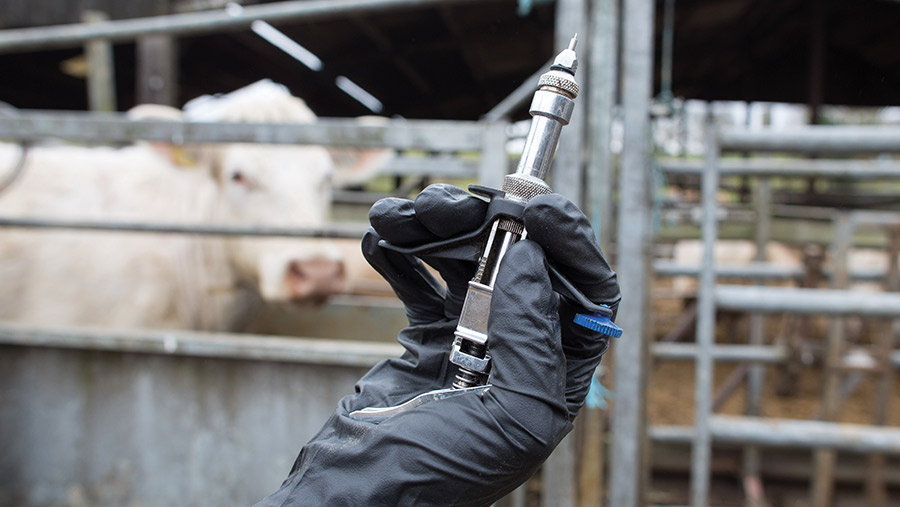Approved TB tester numbers increase, but more needed
 © Tim Scrivener
© Tim Scrivener More than 100 people from across the agricultural community have now qualified or are in training to become an approved tuberculin tester (ATT) of cattle.
The ATT role, created by the Animal and Plant Health Agency (Apha) last November following a successful pilot, allows paraprofessional staff to support vets in carrying out TB testing in England.
It enables private veterinary businesses in England to recruit paraprofessionals from the agricultural sector to help cope with the demands of increased TB testing and a shortage of qualified vets since Brexit.
See also: Free TB biosecurity advice moves England-wide
UK Farmcare, which is working on behalf of Apha to deliver the scheme, said there were now 68 fully qualified ATTs in England, with another 21 conditionally authorised. In addition, 14 people are undergoing the ATT training programme.
“Since we started publicising the ATT opportunity on behalf of the veterinary community back in the spring, we have seen a surge of interest in the role,” said Kate Bowen from UK Farmcare.
James Russell, president of the British Veterinary Association (BVA), said the veterinary workforce has been stretched universally, including within farm animal practices.
Mr Russell said the BVA therefore welcomed the scheme to find newly qualified TB testers to help support private veterinary practices in England with their TB testing commitments.
Visit ukfarmcare.com for information about how to become an ATT.
Q&A: Approved tuberculin testers in England
What is an approved tuberculin tester (ATT)?
It is a para-veterinary professional with the authority to carry out statutory TB skin testing of cattle. ATTs have been used in Great Britain by Animal and Plant Health Agency (Apha) since 2005. In England only, ATTs are now also permitted to be used by private veterinary practices.
Can ATTs be used in private veterinary practices in Wales and Scotland?
No. ATTs are only being rolled out in private veterinary practices in England, and are not currently permitted to carry out TB testing in Wales and Scotland. Skin tests completed by ATTs in England are recognised by Wales and Scotland – for example, for cross-border pre-movement testing purposes. ATTs employed by Apha, however, are authorised to carry out TB tests in England, Scotland and Wales.
Can ATTs test non-bovines?
No. ATTs are only permitted to carry out tuberculin skin testing of cattle.
Are there any types of TB skin tests that ATTs can’t carry out?
ATTs can carry out all statutory and private TB skin tests apart from those for export purposes, including the testing of animals for export of ova or semen. This applies both to ATTs employed by Apha and those in private veterinary practice.
What are the criteria for the ATT role?
Candidates applying for the role must meet a range of criteria, including a minimum amount of previous livestock experience, qualifications, and identification and security checks.
I’m a cattle farmer. Can I apply for the ATT role?
Yes, if you meet the criteria. Candidates must also declare any conflicts of interest as part of the application process. As for vets, ATTs are not permitted to test their own cattle or operate where there is a potential conflict of interest.
Source: TB Hub
